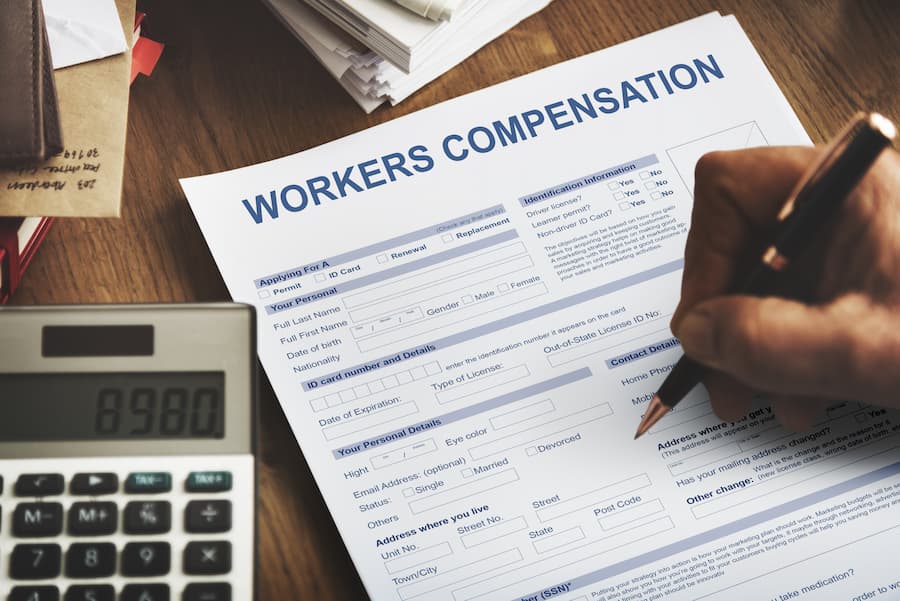Workers’ compensation is intended to be a lifeline for employees injured or sickened on the job, but recent findings paint a troubling picture.
According to the National Academy of Social Insurance (NASI), while the industry’s profitability has soared and employer costs have dropped to a 40-year low, benefits for injured workers have also hit a 40-year low. In 2022, the U.S. saw nearly 3 million workplace injuries and 5,500 worker deaths, with vulnerable groups such as younger and older workers, women, workers of color, and immigrants bearing the brunt.
What’s more, despite the decreasing number of workplace injuries, the NASI report highlights that the benefits being paid out have steadily declined since 1990. The system meant to protect workers is increasingly shifting costs onto those very workers and the public – rather than the employers who should be responsible.
With states making it harder to qualify for benefits and some even making coverage optional for employers, understanding the types of workers’ compensation available and how they should function is more crucial than ever.
This article delves into the different types of workers’ compensation benefits, shedding light on how they are supposed to support those injured on the job and the necessity of workers compensation insurance for employer compliance and employee protection.
Understanding the Basics of Workers’ Compensation
If you’re injured at work, it’s natural to have questions about what comes next. One of the first things to understand is how workers’ compensation works.
In Illinois, the workers’ compensation system is designed to provide swift and fair compensation to injured workers. This system ensures that you can receive the necessary medical care and financial support without the stress of proving who was at fault for your injury.
It’s a safety net built into the employment system, protecting both workers and employers by offering a clear and structured way to handle workplace injuries. A workers compensation insurance policy plays a crucial role in providing benefits to employees who are injured on the job, detailing the obligations of employers and the types of benefits available.
What is Workers’ Compensation?
Workers’ compensation is a form of insurance that provides financial and medical benefits to employees who are injured on the job. Workers compensation laws dictate the structure of workers’ compensation insurance and the rights of injured workers. It is mandated by state law, meaning employers are required to have this insurance.
The Illinois Workers’ Compensation Act governs these benefits, ensuring that workers receive the support they need without the need to prove fault.
Why Workers’ Compensation Matters
Workers’ compensation offers protection to both the employee and the employer.
- For employees, it means they can focus on recovery without worrying about medical bills or lost wages.
- For employers, it helps limit liability by providing a structured way to address workplace injuries.
The insurance company plays a crucial role in handling claims and issuing policies, making sure that both parties are adequately covered and that the claims process is managed efficiently.
Different Types of Workers’ Compensation
Each benefit addresses a different aspect of injury, disability, and recovery, ensuring that injured workers are fully supported.
Understanding the workers compensation claim process is crucial for both employees and employers to ensure timely submission and adherence to legal requirements.
1. Medical Benefits
Medical benefits are the cornerstone of workers’ compensation. These benefits cover all necessary healthcare costs related to work-related injuries.
This includes everything from emergency care immediately following an injury to ongoing treatment like physical therapy or surgeries. Your employer’s insurance is required to cover these costs, meaning you shouldn’t have to worry about medical bills.
This allows you to focus entirely on your recovery.
2. Disability Benefits
Disability benefits provide financial support when your injury affects your ability to work. Temporary disability benefits offer financial assistance for workers unable to return to work due to a work-related injury. There are several types of disability benefits, each designed to fit different situations.
Temporary Total Disability (TTD)
These benefits are for workers who are completely unable to work while recovering. TTD benefits provide 66.6% of your average weekly wage until you can return to work or reach maximum medical improvement (MMI).
Temporary Partial Disability (TPD)
If you can return to work but only in a limited capacity, TPD benefits help. They cover two-thirds of the difference between your pre-injury wages and what you earn after returning to light-duty work.
Permanent Partial Disability (PPD)
If your injury results in a permanent disability but you can still work, PPD benefits are available. These permanent disability benefits compensate you based on a percentage of your wages for a set number of weeks, according to Illinois law.
Permanent Total Disability (PTD)
If your injury leaves you permanently unable to work, permanent total disability benefits provide financial support for life. These benefits are also adjusted for cost of living to ensure your long-term financial stability.
3. Vocational Rehabilitation
Sometimes, a work-related injury can prevent you from returning to your previous job. When this happens, vocational rehabilitation benefits can help.
These benefits provide services like job retraining, career counseling, and job placement assistance. The goal is to help you regain your earning potential by preparing you for a new job that suits your abilities post-injury.
4. Death Benefits
If a worker dies as a result of a workplace injury, their dependents are entitled to death benefits.
These benefits include compensation for funeral expenses and ongoing financial support for the worker’s spouse and/or children. The payments typically amount to two-thirds of the deceased worker’s average weekly wage. This ensures that their family is financially supported after their loss.
5. Wage Differential Benefits
Wage differential benefits are designed for workers who can return to work after an injury but at a lower-paying job. These benefits cover two-thirds of the difference between what you earned before your injury and what you can earn now. This helps to maintain financial stability even if your injury affects your earning capacity.
The Role of a Workers’ Compensation Lawyer
Navigating the workers’ compensation process can be complicated, annoying, and deeply frustrating.
While some cases may seem straightforward, many involve complexities that can be overwhelming without the right guidance. For instance, understanding the full scope of your benefits, handling disputes with your employer, or dealing with a denied claim can be challenging.
Workers compensation claims are particularly complex and significant in the industry, requiring careful evaluation and handling by claims adjusters and legal support for victims.
- Complex Paperwork: Workers’ compensation claims involve extensive paperwork that must be accurately completed. Mistakes or omissions can delay your benefits or result in denial.
- Interpreting Medical Evidence: Lawyers can help gather and present medical evidence to support your claim, ensuring that the full extent of your injuries is recognized.
- Dealing with Insurance Companies: Insurers may try to minimize payouts. A lawyer knows the tactics insurers use and can effectively counter them.
This is where a workers’ compensation lawyer comes in. They bring expertise and experience to the table, ensuring that you’re not navigating these waters alone.
When to Consider Hiring a Lawyer
If you have severe injuries, if your claim has been denied, or if there is a dispute with your employer, a lawyer can help. They can navigate the complexities of the law and ensure you receive the benefits you deserve.
- Severe Injuries: When injuries are severe, long-term disability or significant medical treatment may be involved, making the claim more complex.
- Claim Denial: If your claim has been denied, a lawyer can help appeal the decision and fight for the benefits you deserve.
- Employer Disputes: If your employer disputes the extent of your injury or your eligibility for benefits, legal representation becomes essential.
Benefits of Legal Representation
A workers’ compensation lawyer works to maximize your benefits. They can help gather the necessary documentation, represent you in disputes, and negotiate settlements on your behalf. Having legal representation can make the difference between a smooth claim process and a frustrating experience.
- Maximizing Benefits: Lawyers understand the full range of benefits you may be entitled to and ensure you receive them.
- Efficient Resolution: Legal representation can help speed up the process, avoiding unnecessary delays in your claim.
- Negotiating Settlements: Lawyers can negotiate a fair settlement, ensuring you are adequately compensated for your injuries and losses.
Finding the Right Lawyer in Illinois
When looking for a workers’ compensation lawyer in Illinois, choose someone with experience in handling similar cases.
A good lawyer understands the nuances of Illinois law and will be committed to helping you secure the benefits you’re entitled to. Look for someone who is approachable, communicates clearly, and has a track record of success in workers’ compensation cases.
- Experience in Similar Cases: Ensure the lawyer has a strong background in workers’ compensation law and has handled cases similar to yours.
- Clear Communication: A good lawyer will explain the process in simple terms and keep you informed every step of the way.
- Proven Success: Look for a lawyer with a track record of successfully securing benefits for clients in Illinois.
Know Your Options and Take Care of Your Future

Whether it’s medical benefits, disability payments, or vocational rehabilitation, knowing what you’re entitled to can make a significant difference in your recovery process.
Remember, you don’t have to go through this alone.
If you’re unsure about your rights or need help with your claim, consult a workers’ compensation lawyer. At Midwest Injury Lawyers, our worker’s compensation attorneys can guide you through the process and ensure you receive the support you need to get back on your feet.
